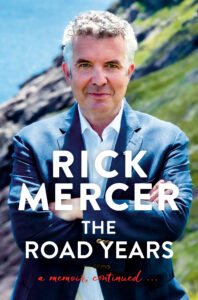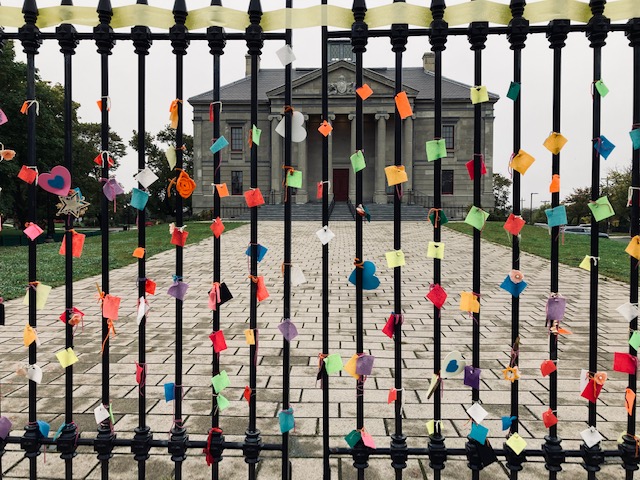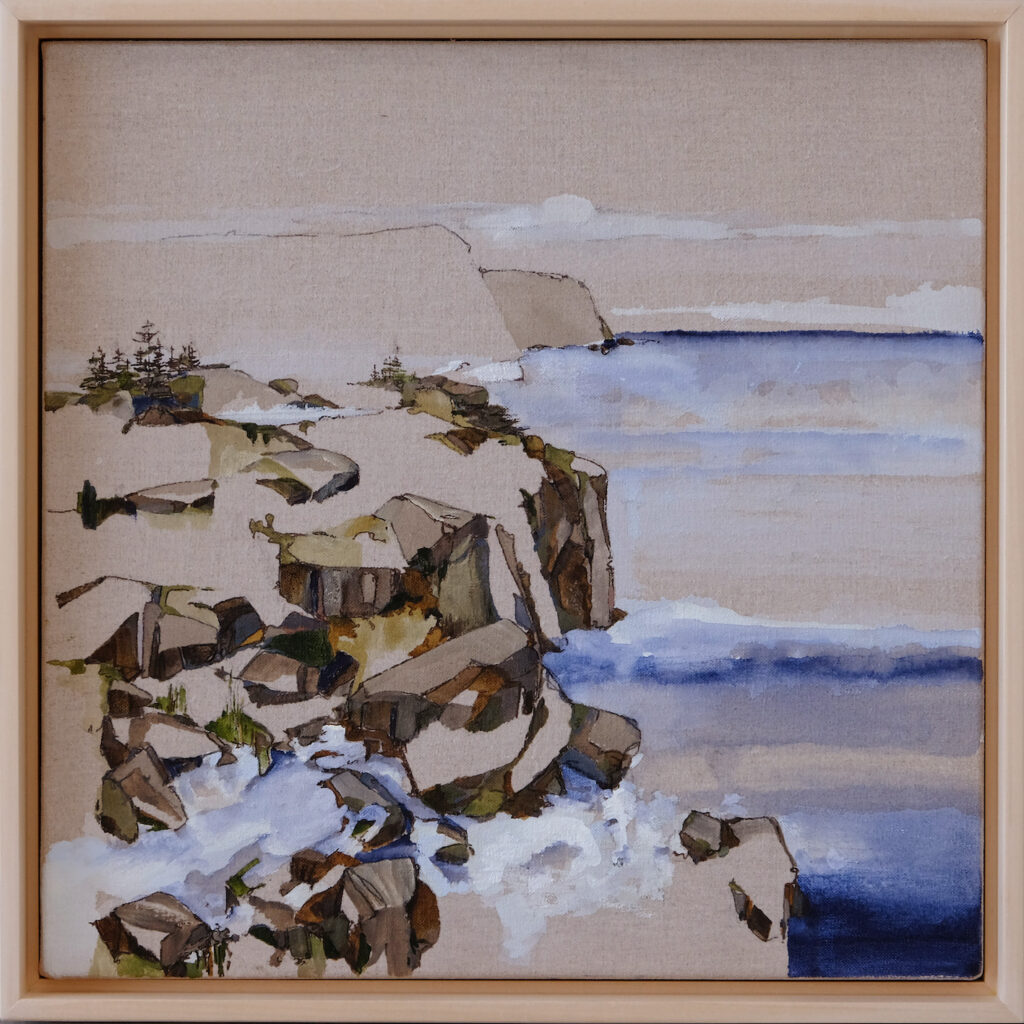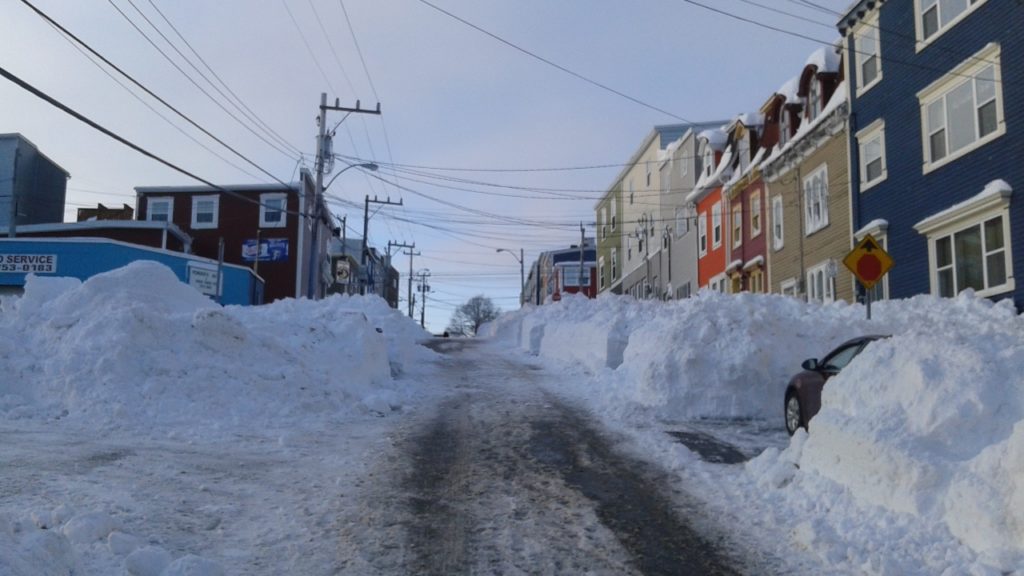“I wanted to make sure that any story I told was a funny story”:
November 2023
Part two of our conversation with Rick Mercer about his latest book, The Road Years.
Did you keep a journal during the seasons of The Rick Mercer Report?
I never did. It’s a huge regret that I never did. With the first book {Talking to Canadians] I was very lucky that [producer] Geoff D’Eon who I travelled with had kept copious notes. And I relied on those. This book I didn’t have that resource, but the advantage was even though I was not usually writing about what you saw on the screen, I could if need be go back and watch what made it to the screen, and that would prompt and remind me exactly what happened and who was there, and then the story would flow from that. Most people, if you’re talking about your university graduation or something, you don’t have the luxury of there being an edited down four-minute version that will trigger your memory.
Were the stories you’ve include the most memorable? How did you make your selection?
First and foremost one of my favourite things in the world is to read something funny, and I find it harder and harder to find that funny thing, and I’m not saying it’s because I’m the only one who writes funny books, it seems the publishing industry doesn’t publish a lot of them, and I wanted to make sure that any story I told was a funny story. ‘Cause there were certain stories that were good stories but they weren’t funny. I wanted them all to a certain extent be funny. I think that’s important for these particular times. I wanted the stories to be in digestible bits, I didn’t want to get too in the weeds on any one thing. That was the criteria.

Some of the strongest pieces though for me were not quote unquote funny. When you went to Africa with Belinda Stronach, after which you created the Spread the Net campaign, the suffering you encountered was very real. And your experience in Kampala, with Ugandan President Yoweri Museveni, how he kept you all waiting, in the heat and with no water, and then proceeded to lecture you on his brilliance – the misery of that comes right off the page.
Yes, and you understand that at this point in my life I’d seen arrogance in politics and I’d seen people being treated poorly in politics, and in the world, but nothing like that of course. And the people telling you, oh wait, he’s coming, just wait, they look like they’re afraid for their lives. That was an eye-opening trip for me for all sorts of reasons. That was the least of it actually. I write about how I’m in a place where there was zero economy, how I have more antibiotics and money in my briefcase than is probably found for four or five hundred kilometres. And there wasn’t even anyone to give the money to because there was no economy. A granola bar would be worth more than the 200 bucks American, because what are you going to do with the two hundred bucks American? Just the incredible unfairness that I had antibiotics in my briefcase just in case? That really struck home. Everyone understands that that kind of poverty exists but when you’re dropped into it it’s certainly an eyeopener.
And the high point for me was also not quote unquote funny, but in Algonquin Park when you held the bear cubs in your arms, and your moment with the mother bear in the cave.
And that was a really scary moment. It was kind of, I don’t want to say mystical, but it was a scary moment because I had some ignorance around bears. I just thought face-to-face with any bear is a bad idea. And suddenly I found myself there. And until I got out there I just assumed there’d be some dude with a rifle. Of course there would be. I had been in the north many times, on shoots that had nothing to do with bears, and there would still be an Indigenous guy 14 foot away off camera holding a gun in case a polar bear came by. I was used to that, and we weren’t even looking for bears. So certainly I expected there to be someone armed when we went looking for them.
I like your appreciation for the provincial and national parks, and how you said that’s how aliens would know we are civilized, because we saved those wilderness areas.
And I am in awe of that, I know the way people act now if someone wants to protect a bit of land, I can’t imagine what people were thinking hundreds of years ago. And people had the political wherewithal to do that? It’s incredible.
I imagine that you still have a lot of stories, are you writing another book?
I can’t imagine writing anything that would smack of a memoir, because I’ve run out of runway. But I have discovered that I like writing books, and I look forward to writing about another subject matter that doesn’t involve me. Whether that’s an individual or an organization or an inanimate object, anything but me for the next book would be good.
Do you get called on as a pundit, to appear on the national networks and such?
I used to get those calls all the time. I’m kind of glad to be out of the commentary business right now. In fact I find myself flabbergasted and shocked every now and then when something comes up in conversation and I’m not totally up to speed. Because for the longest time I was always the type of person who kept up to speed, but when it’s your occupation you watch question period every single day. And you never miss both newscasts. And there’s a certain amount of newspapers you read, and certain columnists you read. I find myself surprised when something happens and I’m not aware of what’s going on. And then you look into it like an average person. That’s a nice feeling. And the feeling that you can turn off the news and go for a walk and clear your head.
The Road Years is published by Doubleday Canada ($36.95).
(Photo: Mercer with famed drummer Neil Peart, who gave Mercer lessons on his personal kit, flown in from LA.)



